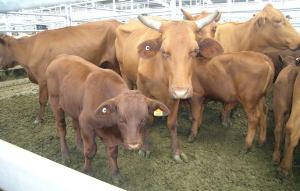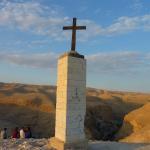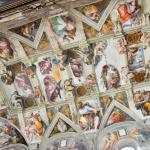When the poor are oppressed by those with wealth or power, when their weakness and poverty is used against them to ridicule and insult them by those who have wealth and influence, the poor will cry out, giving their grievances to those who would hear them out. Those in positions of authority are expected listen to them, to discern the unjust burdens being imposed upon them, and to use their power to restore the common good. If they do not, then the poor will cry out all the way to heaven, and they will be heard.
There is only so much abuse of power and injustice possible before the system which allows them will fall in upon itself and collapse; woe to those who have embraced such an evil system, and used it for their advantage, for they will face the consequences of their actions. It is a part of the way of the world. For every action, there is an equal and opposite reaction; the accumulation of injustice will create an equal and opposite reaction toppling down the system which has created such injustice, leveling things out and providing the means for a restoration of the proper order and justice which has been neglected.
 The prophets understood the pathos of God. They understood that God’s heart was with the poor, the orphan, the widow, the neglected and unjustly marginalized. They knew God had established the world so that social ties created interdependent relationships, and when those relationships were unbalanced, they would topple down. The solution was to build everyone up, especially those at the base, and so the prophets would cry out about the abuse the poor faced, especially by the leaders of Israel. They would deride the abusers of the poor by revealing to them their inner nature or character; thus, for example, Amos saw the rich and powerful like cows feeding off of the poor. But what happens to such cows once they grow fat? They will eventually be led to their own eventual slaughter:
The prophets understood the pathos of God. They understood that God’s heart was with the poor, the orphan, the widow, the neglected and unjustly marginalized. They knew God had established the world so that social ties created interdependent relationships, and when those relationships were unbalanced, they would topple down. The solution was to build everyone up, especially those at the base, and so the prophets would cry out about the abuse the poor faced, especially by the leaders of Israel. They would deride the abusers of the poor by revealing to them their inner nature or character; thus, for example, Amos saw the rich and powerful like cows feeding off of the poor. But what happens to such cows once they grow fat? They will eventually be led to their own eventual slaughter:
“Hear this word, you cows of Bashan, who are in the mountain of Samaria, who oppress the poor, who crush the needy, who say to their husbands, `Bring, that we may drink!’ The Lord GOD has sworn by his holiness that, behold, the days are coming upon you, when they shall take you away with hooks, even the last of you with fishhooks. And you shall go out through the breaches, every one straight before her; and you shall be cast forth into Harmon,” says the LORD (Amos 4:1-3 RSV).
The Northern Kingdom, Samaria, was the first to face the consequences of Israel’s sins. St. Cyril of Alexandria interpreted the words of Amos as indicating that the people in authority in Samaria lived lavish lives, seeking excessive luxury for themselves, turning away from justice so they could pursue excessive pleasure:
The people of Samaria were conspicuous for extreme arrogance and luxury, surpassing all others for the abundance of their wealth; as I said, they built themselves fine and lavish houses suited to the seasons – I mean winter and summer – which the oracle announced in advance would completely and utterly perish. It is therefore to these people who owned their own houses and were devoted to spoiling themselves with fading luxury he refers as cows of Bashan. Now, the country of Bashan was wooded and leafy, very suited to being able to provide abundant fodder to whatever gazed there. God therefore compared to cows of Bashan prosperous and well-nourished people concerned for fine living. [1]
Luxury does not last; goods which are taken in and used become spoiled as time goes by. What is stored up for the sake of pleasure eventually loses its luster, indeed, might even be expelled by those who once horded it up after they get bored with what they have obtained. Pursuing inordinate luxury for oneself, trying to hold on to what one has obtained so no one can get at it, will not satisfy. Because such desire can go on forever without limit, satisfaction will never be found by trying to appease it alone. Those who use power and influence for self-gain will pursue such unlimited licentiousness at the hands of the poor; they will grow fat as the poor grow thin, until at last, they will be ripe for the slaughter, and the balance of power changes as those who have been oppressed find the winds of change going their way and they are able to take down their abusers. The arrogance of wealth can only hold off the scales of justice for so long before they tip over justice forces a restoration of the balance of power.
Often, it is when poverty is in the rise, when the imbalance is so great, that only a few are able to continue in their leisure at the expense of all others, that their actions become noticed for what it is: theft, plain and simple theft. They have rigged the system through the creation of laws for their own good instead of the common good, and so they act in a way far from justice, as Lao Tzu well understood:
The great way is easy, yet people prefer by-paths.
The court is corrupt,
The fields are overgrown with weeds,
The granaries are empty;
Yet there are those dressed in fineries,
With swords at their sides,
Filled with food and drink,
And possessed of too much wealth.
This is known as taking the lead in robbery.Far indeed is this from the way.[2]
The law is meant to be for the sake of the common good; when it is used for the sake of evil, though it can be said to be the positive law, it has no force; just because a brigand dictates rules does not make the rules just, so when the law is used for the sake of evil, it is no longer the law, but the use of force pretending to be the law. Theft which goes under the name of the law might be difficult to observe, but once a nation has gone through the by-paths long enough and observed where they lead, they will know they need to return once again to the straight path, and those who have claimed authority will be punished because of their abuse of authority.
When those in positions of authority use their power to displace justice, they do so in an idolatrous fashion. They try to pretend God wants it this way. They set up a golden calf, their socio-economic system, which they say all should bow to and worship for the sake of its generosity; the sacrifices which the people make for that calf are rendered over to those in power, who grow fat indeed off their idolatrous ways. As they take away from the poor and needy and give to themselves, they have no love or charity in themselves: they are, as Maimonides would say, Belial:
Whosoever refuses to give to charity is called Belial, the same term which is applied to idol-worshipers. With regard to idol-worshipers it is said, “Certain base fellows [literally, children of Belial] have gone out” (Deut. 13:14)m and with regard to those who refuse to give charity it is said, “Beware that there be not a base [Belial] thought in your heart” (ibid., 15:9); and he is called a wicked man, as it is said, “The tender mercies of the wicked are cruel” (Prov. 12:10); and he is called a sinner, as it is said, “ And he cries to the Lord against you, and it be sin in you” (Deut. 15:9). [3]
When the system creates a poor who become so needy they will do anything to survive, including prostitute themselves, those who put them in such a position are to be condemned. Thus, as St. Ambrose indicated, those who sell the hope of the needy are the ones who are dishonorable:
Why, therefore, is a brother cheated? Why is a hireling defrauded? The gain from the sale of a harlot is not great, he [the writer of Proverbs] says; it is the gain of fleeting frailty. A harlot is not one’s own possession, but a public possession; not woman alone is a harlot, but every wandering desire is a harlot. Every act of faithlessness, every lie, is a harlot and not the one who prostitutes her body ,but every soul which sells her hope, which seeks disgraceful profit and an unworthy reward.[4]
It is not that we cannot make a just profit in the world; it is that we must understand the limits of our needs and use our work in the world for their fulfillment and not go excessively beyond them at the expense of others. We establish who we are by what we do, and so we should make sure we do not seek a licentious libertine way of life, seeking pleasure above the good, because we will have forgotten our true needs which includes the needs of the soul. We should prepare ourselves now for eternity. Our actions will define who we are in eternity, and if we do not now make ourselves of good and sound character, acting in justice and love, our eternal being, our existence in the next world (after death), will only suffer; the injustice we establish through the abuse of others will follow with us into eternity. When this is forgotten, it is easy to see how and why people will be self-seeking, as Al-Ghazzali understood:
Thus the occupations and businesses of the world have become more and more complicated and troublesome, chiefly owing to the fact that men have forgotten that their real necessities are only three – clothing, food, and shelter, and that these exist only with the object of making the body a fit vehicle for the soul in its journey towards the next world. [5]
Those who find themselves accumulating more goods of the earth, then, are not to be seen as rich unless they use it by gifting the poor with their wealth; then they shall have a true richness, the richness of character, which we should want – a richness which is beautiful and beyond compare. “The beauty of riches is not in the purses of the rich, but in their support of the poor. In the weak and needy, riches shine brighter.”[6] And so it is not in wealth of goods but wealth in actions which allows us to become truly rich, for it is there we become just without retribution. It is better to be poor and just than wealthy and unjust, for in such situation, we will possess true, lasting riches. “But, if you wish to be rich, you must be poor. Then you can be rich in all things, if you are poor in spirit. Not property, but the spirit, makes one rich.” [7]
For a good and just character is a richness which can never be taken away, it can only be lost by us. If we want to be avoid the consequences of injustice, we will never pursue inordinate wealth at the expense of others but will share with all the good which we have. Then we will not become like fatted calves being prepared for the slaughter, but rather, we will be men and women slowly moving along the way to paradise.
[IMG=Santa Gertrudis cows and calves by Cgoodwin (Own work) [GFDL (http://www.gnu.org/copyleft/fdl.html) or CC BY 3.0 (http://creativecommons.org/licenses/by/3.0)], via Wikimedia Commons]
[1] St. Cyril of Alexandria, “Commentary on Amos” Commentary on the Twelve Prophets. Volume 2. Trans. Robert C. Hill (Washington, DC: Catholic University of America Press, 2008), in 55.
[2] Lao Tzu, Tao Te Ching. trans. D. C. Lau (London: Penguin Books, 1963), 60 [LIII].
[3] Maimonides, “Seeds” in A Maimonides Reader. Intr. and ed. Isadore Twersky (Springfield, NJ: Berhman House, 1972), 135-6.
[4] St. Ambrose, “Letter to Constantius, before Lent 379” in St. Ambrose: Letters. Trans. Sister Mary Melchior Beyenka, OP( New York: Fathers of the Church, 1954), 81.
[5] Al-Ghazzali, The Alchemy of Happiness. Trans. John Murray (np., npub, 1910; repr. Glastonbury, UK: The Lost Library, 2016), 45.
[6] St. Ambrose, “Letter to Constantius,”88.
[7] St. Ambrose, “Letter to the Church at Vercelli, 396” in St. Ambrose: Letters. Trans. Sister Mary Melchior Beyenka, OP( New York: Fathers of the Church, 1954), 354.
Stay in touch! Like A Little Bit of Nothing on Facebook













